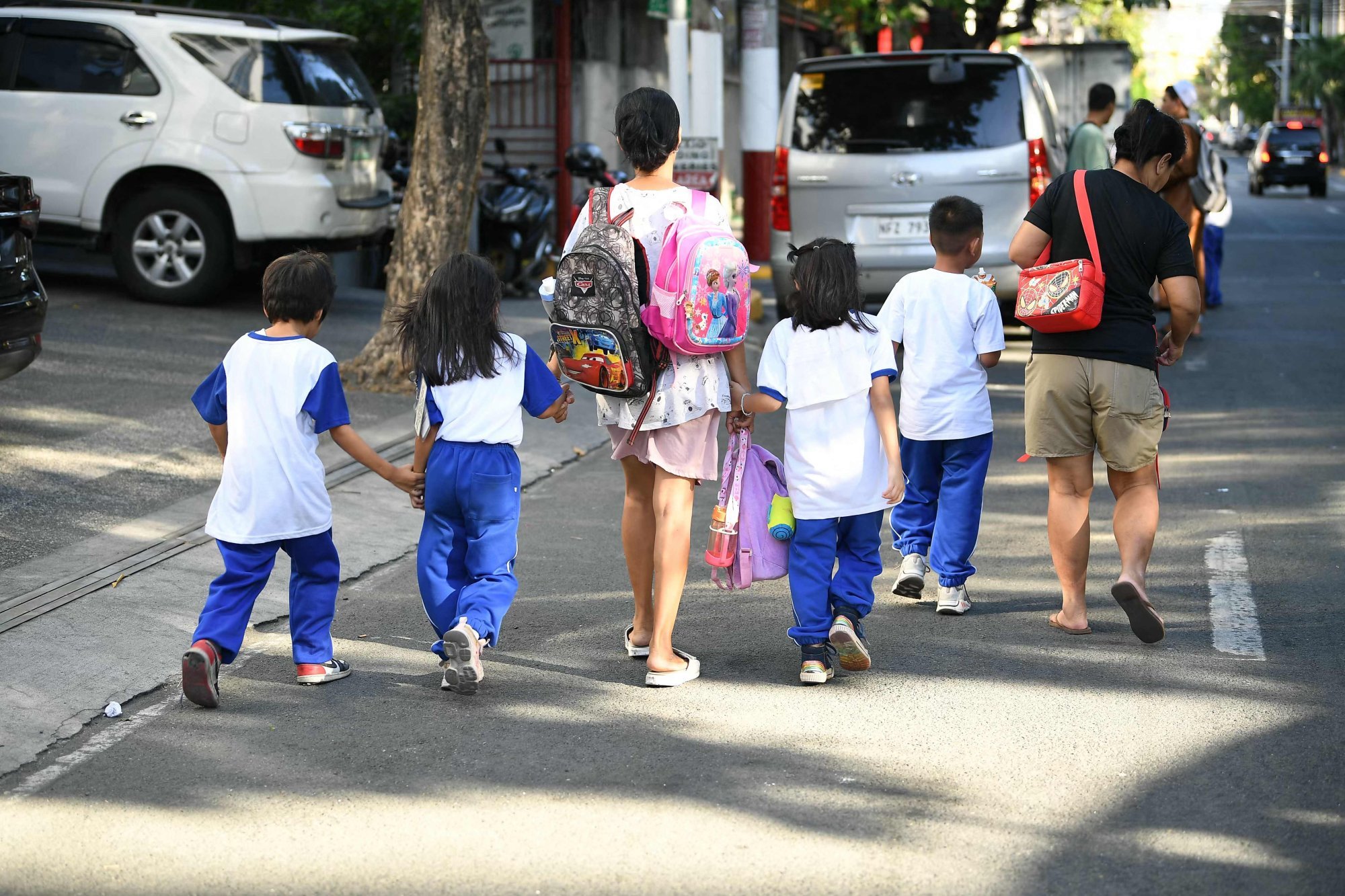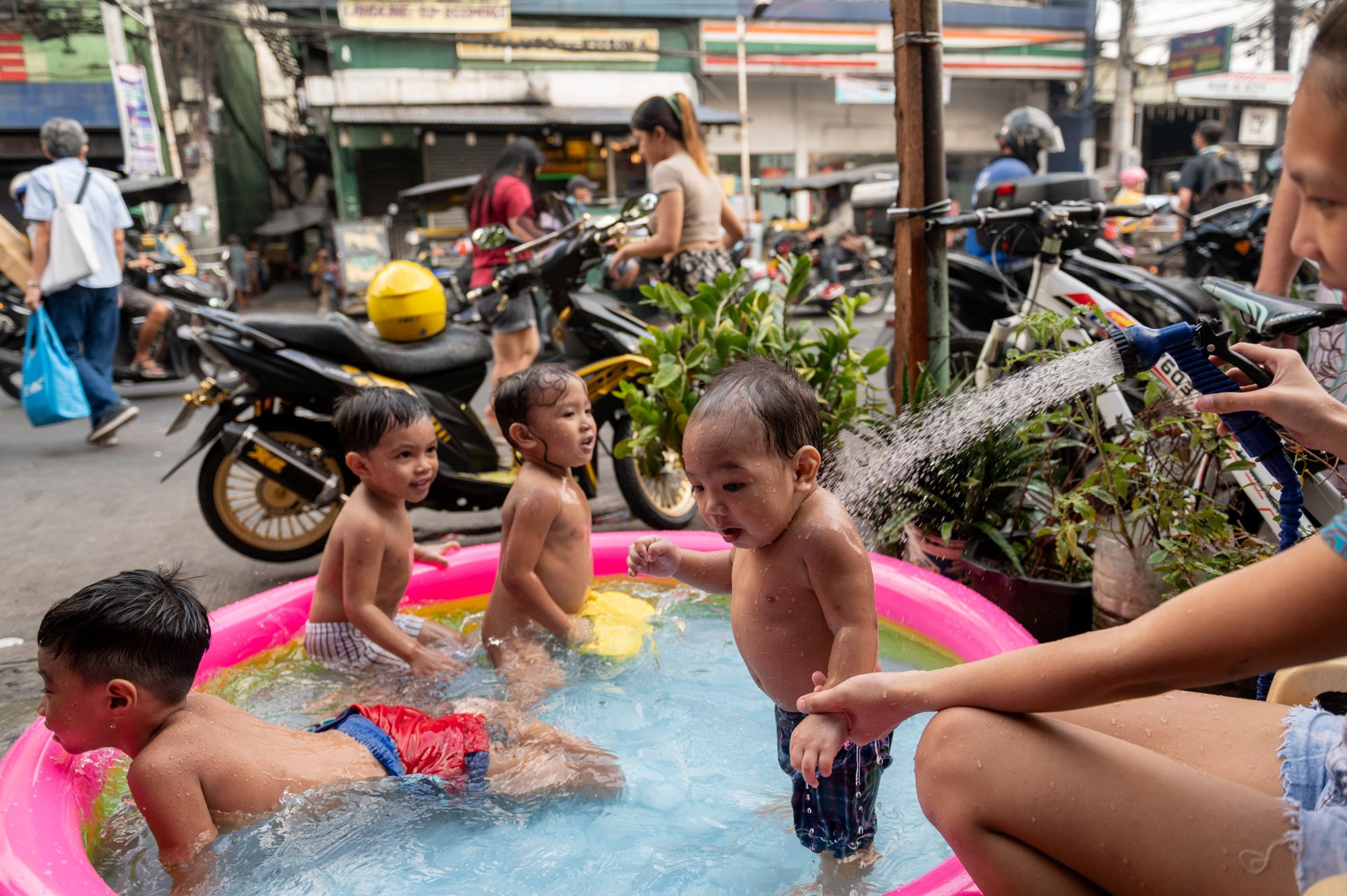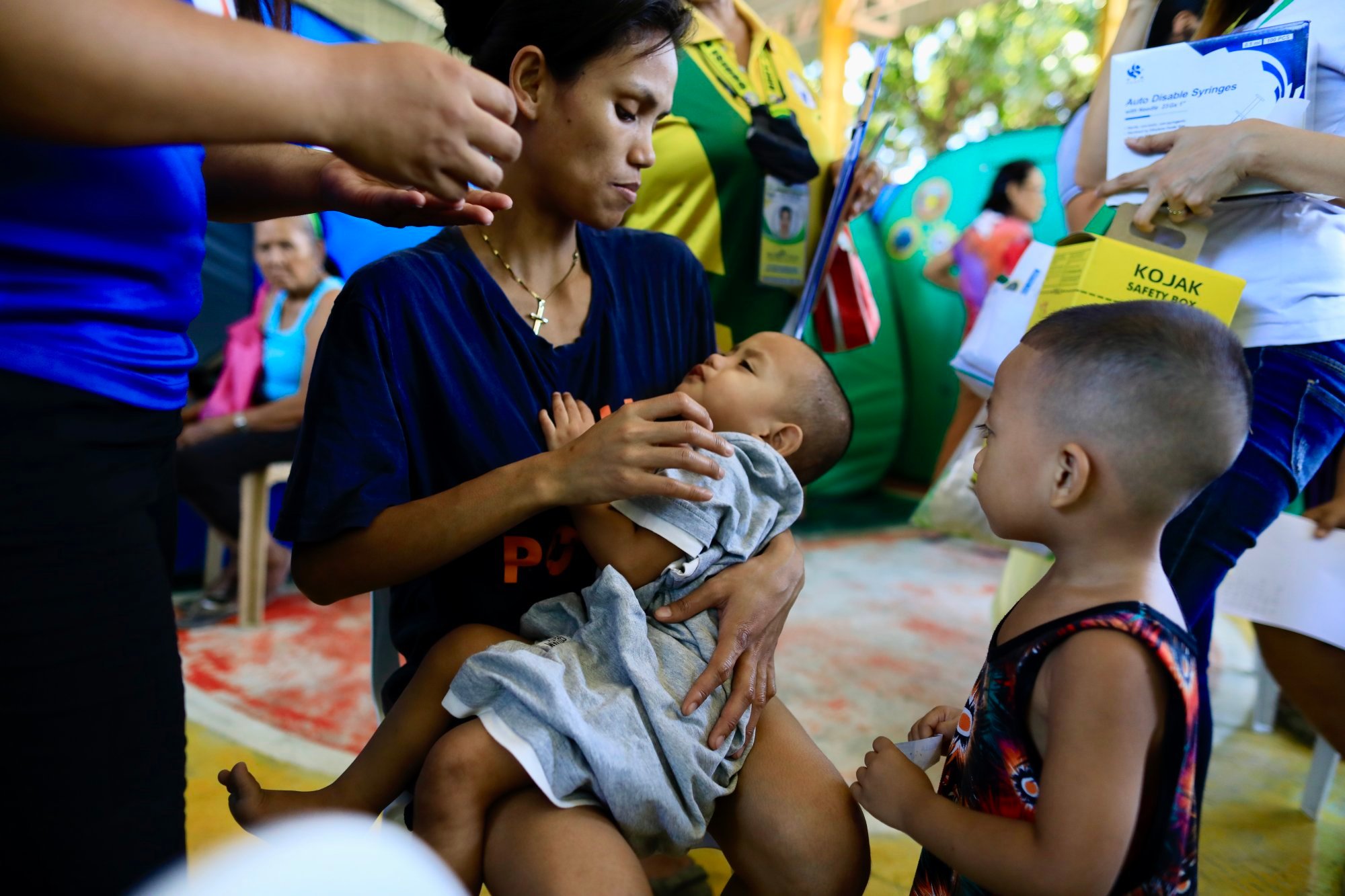But in the Philippines’ recent whooping-cough outbreak, the worst-hit age group – with 34 deaths – was infants aged six weeks to four months, Domingo said.
Among those who have died from complications related to the infection this year were also 13 babies under six weeks of age, a five-month-old infant and a four-year-old child.

Domingo said most regions in the Philippines had reported pertussis cases, with 158 in Metro Manila alone – and the outbreak is only expected to spread.
Nearly 30 times the number of cases were recorded in the first three months as the same period last year, when the health department tallied just 28 infections.
Antibiotics can be used to treat whooping cough, but the infection is often mistaken for the common cold as symptoms can appear mild at first and take up to 10 days to fully develop.
The Philippine General Hospital in Manila has seen an influx of patients with symptoms including chronic coughs, colds, fever, and difficulty breathing, according to Dr Maria Liza Zabala, a paediatric pulmonologist and former associate clinical professor at the University of the Philippines, which operates the facility.
“Although clinical manifestations of pertussis vary with age, there should be a high index of suspicion [among doctors]. Recognition of the disease can be done based on history and signs and symptoms,” Zabala told This Week in Asia.
Some patients may present signs and symptoms atypical of pertussis, which can escalate into more serious and life-threatening conditions among infants, she said.

“Most infants with whooping cough do not cough at all,” Zabala said. “They may present with atypical clinical presentations and may often be unrecognised, leading to serious complications such as seizures, pulmonary hypertension, and respiratory problems like pneumonia … their symptoms could mimic those of a common cold throughout the duration of their illness, not just in the initial stages. These issues can pose a life-threatening risk.”
Infants are more vulnerable to further complications from whooping cough because their immune systems are still developing, she said.
“In some cases, whooping cough can trigger intense coughing episodes in infants and young children, potentially causing serious complications such as difficulty in breathing and challenges with eating and drinking, which may lead to dehydration,” Zabala said.
Low vaccination rates
She said the outbreak could have been caused by “missed jabs or vaccinations, especially during and after the Covid pandemic”.
“Unvaccinated or incompletely vaccinated children or adults act as reservoirs of infection. Likewise, booster doses should be given to prevent waning immunity from the disease, but they are often missed,” she added.
As part of its routine immunisation programme for children, the Philippine Department of Health offers three doses of the pentavalent vaccine for free, beginning at six weeks. This vaccine series, completed at 10 to 14 weeks of age, protects infants from diphtheria, pertussis, tetanus, Hemophilus influenza type b and hepatitis B.
But health officials say low immunisation rates among children in recent years have curtailed widespread protection against these diseases. Free vaccinations are not available to older children and adults in the Philippines.

The World Health Organization says about 95 per cent of any given population must be vaccinated to achieve herd immunity against diseases, but Domingo said just 62.3 per cent of children in the Philippines were considered “fully immunised” as of last year.
He attributed the decline in vaccination rates to lockdowns that were implemented during the pandemic.
“The pertussis – and even measles – outbreaks have been linked to decreased vaccination rates during the pandemic because of the lockdown or decreased movement of the population. This is not just a problem seen in the Philippines, but also worldwide,” Domingo said.
However, according to Unicef, the UN children’s agency, immunisation rates had been steadily declining even before the pandemic, with vaccine coverage falling in the Philippines from 2015 to 2021.
Unicef data shows that, from 2019 to 2022, there were 1 million children in the Philippines who had received zero doses of vaccine – the fifth-highest number of unvaccinated children in the world within that period.
Measles cases in Europe surge nearly 45-fold, WHO says
Measles cases in Europe surge nearly 45-fold, WHO says
The deaths of 14 Filipino children were linked to Dengvaxia, a dengue vaccine produced by pharmaceutical company Sanofi Pasteur, in 2017 by Philippine Chief Public Attorney Persida Acosta, who filed criminal charges against Garin and other officials based on her office’s autopsy findings.
Medical groups such as Doctors for Truth and Public Welfare slammed that conclusion as baseless and urged an end to the autopsies. Their call was based on the findings of pathologists at the Philippine General Hospital, who concluded that only three deaths had a causal link to the vaccine.
The group said that the fearmongering was only discouraging parents from getting their children jabbed with proven vaccines.
A 2021 study from the University of the Philippines showed that the Dengvaxia controversy had led to a “significant decline” in vaccinations.
Domingo attributed the vaccine hesitancy to “misinformation and a lack of awareness about the availability of free vaccinations in barangay (village) health centres”, adding that vaccination problems were also prevalent elsewhere in the world.
Pakistan plans prison time for parents who fail to vaccinate kids against polio
Pakistan plans prison time for parents who fail to vaccinate kids against polio
“Many countries worldwide, as reported by the WHO, have a vaccination problem. Lockdowns during the Covid-19 pandemic have left a significant number of the worldwide population without routine immunisations,” he said.
Philippines Health Secretary Ted Herbosa said on March 25 that he had ordered the fast-tracking of 3 million pentavalent vaccines to arrive “at the soonest possible time”, advising pregnant women to consult healthcare providers about getting the Tdap vaccine – which can prevent tetanus, diphtheria, and pertussis.
Domingo said the health department was focusing on “effective logistics”, including catch-up immunisations for children in high-risk regions, the procurement of 6,000 antibiotics for first-line treatment, and personal protective equipment for healthcare workers.


